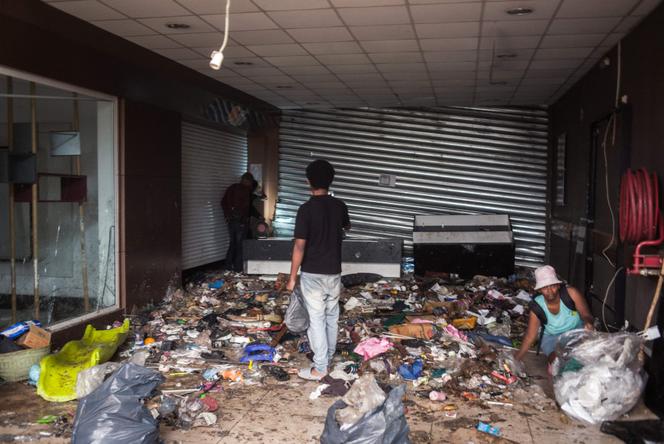


Madagascar's president on Friday, September 27, sacked his energy minister in a bid to calm protests over power cuts and water shortages, which had left wreckage strewn across the capital a day earlier. Police used rubber bullets and tear gas to disperse crowds of mostly young people in Antananarivo on Thursday, in protests President Andry Rajoelina branded "acts of destabilisation in the form of a coup d'état" in his first on-camera comments.
Protest organizers on Friday urged people unhappy with Rajoelina's government to "come in numbers" for a "peaceful demonstration" on Saturday morning, distancing themselves from the scenes of looting on Thursday. Protesters have voiced anger over persistent water and power cuts that often leave homes and businesses without electricity for more than 12 hours each day across one of the world's poorest countries. Some people accuse Rajoelina's government of failing to improve living conditions.
The authorities imposed a dusk-to-dawn curfew after banks and shops were robbed and set on fire and the houses of three pro-government parliamentarians were torched. Five protesters were killed in the violence, a hospital source said.
A station of Antananarivo's new cable car system – one of the government's flagship infrastructure projects – was also set on fire. Besides the capital, the authorities on Friday placed four other major cities – Antsiranana, Majunga, Toliara and Antsirabe – under an extended nighttime curfew.
The French embassy advised avoiding non-essential travel in the capital and in Antsirabe, Madagascar's third-largest city. The British embassy warned that "further protests and disorder are expected and may spread to other parts of Madagascar."
Organizers called for demonstrators to gather at the capital's university on Saturday at 10 am local time.
Rajoelina, who was in New York this week for the UN General Assembly, acknowledged on Friday that "the energy minister was not doing his job" but "firmly condemned" the "pillaging and violence." The 51-year-old was re-elected in 2023 for a third term in a ballot boycotted by the opposition in which less than half of registered voters took part.
He first came to power in the world's top producer of vanilla in 2009, leading a popular movement and benefiting from a coup that ousted former president Marc Ravalomanana. After not contesting the 2013 election due to international pressure, he was voted back into office in 2018.
